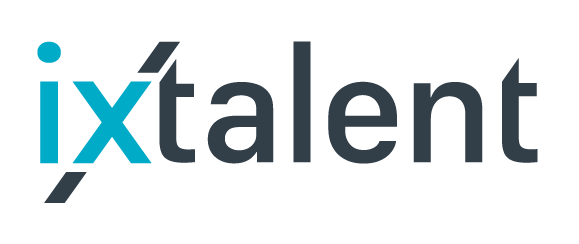By Bayram Kont | Executive Consultant
This article deals with one of the most frequently asked questions by software developers in Turkey. How will their earnings be taxed if they stay in Turkey and provide software services to companies abroad? Should they provide paid services, or should they set up a company? Is it possible to tax them according to self-employment earnings? What kind of tax deductions and incentives can they benefit from?
While looking for answers to these questions, we did not go into too much technical detail on taxation issues. We preferred the content of the text to be practical and easy to understand. In addition, in this article, we have taken the software developers residing in Turkey (with a residence permit) as a basis. Foreigners who are temporarily in Turkey and provide software services abroad without a residence permit are not included in the scope of this article.
We mainly need to determine the software developers’ service delivery status to examine how to tax their earnings.
Software developers can have three types of service status:
1) Delivering software services to foreign companies with paid status
2) Delivering software services to foreign companies as a freelancer
3) Delivering software services to foreign companies by establishing a company
Now, let’s examine how the taxation will be according to these statuses.

I – Delivering Software Services to Foreign Companies with Paid Status
In the Income Tax Law of Turkey, there is a notable exception provision (Art.23/14-a) for the wages received from employers in foreign countries. With this article, the wages paid in foreign currency by the foreign company/employer, whose legal and business center is not located in Turkey, to the service professionals employed in the liaison offices or regional management centers out of Turkey are exempt from income tax.
What are the conditions to benefit from this tax exemption? Those are:
1) The company abroad must be within the scope of the limited taxpayer. In other words, the legal and business center must be outside Turkey.
2) The company abroad should not engage in any activity in Turkey to generate profit.
3) Wages must be paid to the software developer in foreign currency over the employer’s earnings from outside Turkey.
4) The employee must be a service person, and the payment must be in the nature of wages, which must be documented when requested.
5) The paid fee should not be recorded as an expense in the accounts of the limited taxpayer institution in Turkey.
However, for a software developer to be called an employee of a foreign company, it may not be enough just to sign an employee-employer contract with the foreign company. In case of a dispute, the relevant tax administration in Turkey will receive a payroll, premium, social security number, etc., from the employee. It may also ask for documents like proof and some legal records of the company to which the service is provided. The situation of software developers who cannot provide a convincing justification can be considered consultants, not paid employees, and may be subject to tax accordingly.
Since the wage incomes obtained from abroad that do not meet the above conditions are not subject to withholding (deduction) within the scope of Article 95 of the Income Tax Law, it must be declared as wage income with an annual income tax declaration by the software developer.

II. Delivering Software Services to Foreign Companies as a Self-employed Person
According to Article 65 of the Income Tax Law of Turkey, earnings arising from all kinds of self-employment activities are self-employment earnings. Self-employment activity; It is the execution of non-commercial works based on personal work, scientific or professional knowledge or expertise rather than capital, under personal responsibility, on one’s own behalf and account, without being subject to the employer.
The income of a software developer residing in Turkey (ie, full taxpayer) from abroad is based on his time. In case of not being paid to the employer abroad, it will be considered as self-employment earnings. Taxation subject to self-employment income is in question if the person does not work as a paid employer.
If the software activity is given temporarily, it will be considered as the income obtained from the occasional self-employment activities per Article 82/4 of the GVK. Accordingly, if a net revenue of more than 58,000 TL is achieved in a calendar year (for the year 2022), the income above 58,000 TL will be declared with the annual income tax return and will be subject to tax. When calculating the net income, the costs and expenses incurred for this work will be deducted from the revenue obtained, provided that they are documented.
On the other hand, the income obtained as a result of performing the self-employment activity that we have described above on a continuous basis within a calendar year, not incidentally, will be considered as self-employment income in accordance with Article 65 of the Income Tax Law. In this case, all earnings in a calendar year will be declared and subject to tax.

III- Delivering Software Services to Foreign Companies by Establishing a Company
Mostly, companies abroad prefer to sign a fixed-term contract with the software developers instead of employing them for a fee in the remote working method. In the contracted remote working model, you need to issue an invoice for the service you provide so that the company abroad can pay you. The company abroad does not deal with your domestic tax obligations and takes no responsibility in this regard. It also states these issues in the contract.
Now, after discussing some preliminary information required to establish a company, let’s explain the taxation practices according to company types in Turkey and examine the tax exemptions and incentives in force for software developers.

How Can You Establish a Company in Turkey as a Software Developer? What are Tax Issues and Incentives?
Establishing a company in Turkey is subject to specific procedures. Generally, there are three types of company legal forms in Turkey. These are:
1) Sole proprietorship
2) Limited company
3) Incorporated company
Large-scale corporate companies generally prefer the incorporated company type in Turkey. It does not make sense for a software developer to establish an incorporated company that will provide remote service abroad. So, which one is the most advantageous to set up a sole proprietorship or a limited liability company? The table below compares these two types of companies for a software developer.
Sole Proprietorship | Limited Company |
Setting up is as easy as filing a petition. | Although it is not very long and complicated to set up, it is subject to some procedures.
|
It is easy to liquidate the company.
| The company’s liquidation is easier than an incorporated company, and it takes a little longer than a sole proprietorship.
|
There is no minimum capital requirement for setting up the company. | There is a minimum capital requirement of 10,000 Turkish Lira for setting up the company.
|
It is generally a one-person company. More than one natural person can also establish a sole proprietorship.
| A limited company can also be established as a single person.
|
The founding partner/person is fully liable for the company’s debts.
| The partners or / founder are only responsible for the company’s debts as much as the capital they have invested in the company.
|
The founder is subject to 4/b insurance system and must pay in premiums.
| The founder or partners are subject to 4/b insurance system and must pay in premiums.
|
Earnings are subject to income tax. It is taxed on a progressive tax basis. The maximum tax rate is 40 percent.
| Corporate incomes are subject to corporate tax at the rate of 23.5 percent.
|
There is a 50 percent income tax exemption in software exports.
| There is a 50 percent corporate tax exemption in software exports. |
Software services delivered to foreign companies have the right to VAT exemption and VAT refund.
| Software services delivered to foreign companies have the right to VAT exemption and VAT refund.
|
The founder can spend as he wishes after paying all income tax. | Income and profit belong to the company. There is a 10 percent withholding tax for distributing company profits to partners. The partners or founder cannot spend the company’s money as they wish.
|
Expenses incurred for company activity are tax-deductible. If the VAT charged is more than the VAT to be deducted, a VAT refund may be requested.
| Expenses incurred for company activity are tax-deductible. If the VAT charged is more than the VAT to be deducted, a VAT refund may be requested.
|
The Financial Advisor service fee is lower than a limited company. | The Financial Advisor service fee is lower than an incorporated company and higher than a limited company.
|

Tax Exemption For Young Entrepreneurs Under 29
The government provides incentives to the young entrepreneurs who meet some conditions. These conditions are:
a) Being a full taxpayer natural person for whom income tax liability has been established for the first time
b) Not complete the age of twenty-nine as of the commencement date of the taxation
c) For their commercial, agricultural, or self-employed activities
d) Notifying the tax office so that you are affiliated within 10 days from the date of employment
e) Overseeing the work yourself.
The portion of these earnings, up to 75,000 Turkish lira, is exempt from income tax during the three taxation periods starting from their activities’ calendar year. In addition, optional insurance (“BAĞKUR” in Turkish) premiums are also exempted for one year.
Entrepreneurs who will provide software services abroad by working remotely can establish a sole proprietorship by fulfilling the above conditions.

Tax Exemption on Software Export
With the additions to both the Income Tax Law and the Corporate Tax Law, 50% of the revenues obtained from the following services provided to those residing abroad from Turkey can be deducted from their income and/or corporate income:
- Architecture
- Engineering
- Design
- Software
- Medical reporting
- Accounting record keeping
- Providing call center and data storage services
- Education and health services provided subject to the permission and supervision of the relevant ministry.
To Benefit From the Tax Exemption
1- The services mentioned must be provided by companies residing in Turkey, to persons not residing in Turkey, and to companies whose workplace, legal and business center are located abroad.
2- It is necessary to benefit from the service provided abroad. In other words, the service provided should not be related to the activities in Turkey of the company originating abroad. The service provided must be fully utilized abroad.
Services within this scope should be provided to individuals and companies not settled in Turkey, and to non-resident individuals and institutions.
3- To benefit from this exemption, an invoice or similar document must be issued on behalf of the customer abroad.
4- Software and design services should be specified among the main fields of activity written in the articles of association of your company.
Companies that provide design and software services also offer services to people residing in Turkey do not constitute an obstacle to benefiting from the discount. On the other hand, 50% of the income obtained from the design and software services provided only to foreign individuals and institutions is discounted.
5- In addition, as a rule, the service fee must be brought to Turkey in foreign currency. A foreign currency purchase document must be obtained for the service to be exported.
6- Service exports are also exempt from VAT. However, the exception can be used in the period when the foreign currency is brought to the country, not at the time the invoice is issued. In other words, even if the invoice is issued on a date before the export value of the foreign currency was brought into the country, the service export exception will be declared in the declaration of the period in which the foreign currency was brought into the country.
Within the scope of these rules, the revenues of sole proprietorships and capital companies providing software services to foreign companies from these activities are exempt from tax at 50 percent. In addition, VAT will not be calculated for invoices issued for this activity.
Like an export company, companies exporting software can request a refund of the VAT amounts they have incurred for company activities from the tax offices, as they are subject to VAT exemption.
The mentioned 50% discount is also applicable in establishing a business within the scope of Self-Employed Activity.

Which Company Should Be Established? Sole Proprietorship or Limited Company?
Sole proprietorships are subject to income tax law, and their earnings are taxed from 15 percent to max. 40 percent with a progressive tax system. As of 2022, net incomes exceeding 170,000 TL are subject to 35 percent income tax, while net revenues exceeding 880,000 TL are subject to 40 percent income tax. For example, in 2021, a sole proprietorship with an average monthly net revenue of 50,000 TL and a total annual net revenue of 600,000 TL pays 183,500 TL income tax with a progressive tax system. The average tax rate he pays is around 30 percent. Moreover, the sole proprietorships company’s founder can spend the remaining profit as he wishes after paying the income tax. The founding partner is also fully liable for the company’s debts.
On the other hand, limited companies are subject to 23.5 percent corporate tax on their net earnings as of 2022. There is also an additional withholding tax of 10 percent on the distribution of the profits to the company’s partners because the profits earned belong to the company. This way, limited company partners’ tax burden increases up to 33.5 percent. In addition, the founders of limited companies have limited liability for the debts and commitments of the company.
The tax burden of sole proprietorships companies is much less than limited companies. A fifty percent exemption from corporate tax is valid for both company types.
The most crucial advantage of sole proprietorships is that they can be established and liquidated quickly. However, establishing a limited liability company and the follow-up of accounting records and tax liabilities under the consultancy of a financial advisor will mitigate operational burdens on the software developer.
In the light of all this information, it seems more advantageous for a software developer to establish a sole proprietorship as long as his monthly net income does not exceed 1.000,000 TL.
Read Also These Featured Articles
We advise you to review this Turkish article (if you know Turkish) to grasp an in-depth look at the tax aspects of remote working from Turkey to abroad as a software developer.
You may also like the following article in a similar topic:
How to Work Remotely From Turkey For US Companies As a Software Developer?


